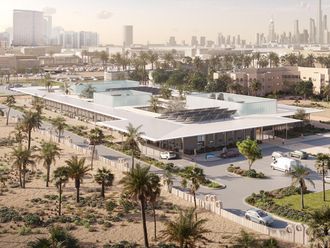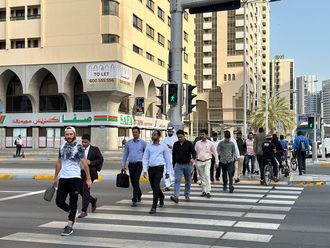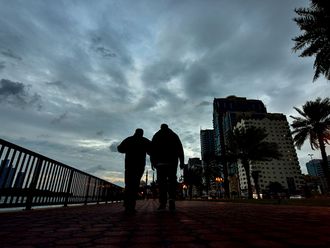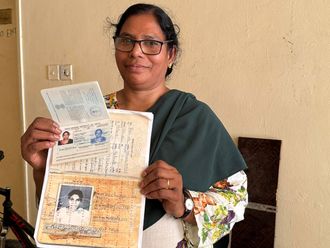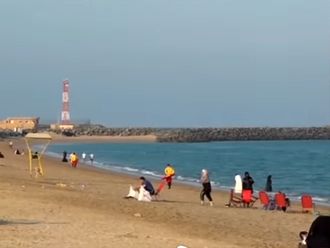The UAE has all the right ingredients of a recipe for disaster that may be closer than previously thought, warned a visiting member of a United Nations group eyeing climate change.
Its densely populated cities lie on the seashore, meaning they could drown if sea levels climb high enough on the back of global warming, pointed out Professor Geoffrey Boulton, a British geologist with the Intergovernmental Panel on Climate Change (IPCC).
"The UAE is a hot spot that could see catastrophic and striking effects of climate change like extreme storms; an even hotter and drier subtropical desert – that's us here; a more acidic sea and damaged coral," said Boulton.
"Some of them [the effects] are already happening. By 2020, they could really start to bite. Within the next century, it could be the end of the story."
Exploring the possibilities, Boulton said local food would become hard to find because agriculture here would suffer from more salty water – not fit for farming – invading underground freshwater pools.
Another danger is pollution, he said.
"The country is a big polluter, with an 80 tonne per capita emission of the greenhouse gas carbon dioxide compared to only 14 tonnes per American head yearly. It comes mostly from cars."
Carbon dioxide in the air traps the sun's heat, warming temperatures worldwide, it is thought.
The compound is also toxic at certain levels to humans.
The high number of air conditioners and desalination plants here, Boulton said, that run on power produced from carbon-based fuel is not helping either.
"Even the power stations use oil," he said.
Boulton said he wants the UAE residents to think about the effect populations have on the natural world, which can turn around and influence human lives.
"People need to understand these things. If everyone believes they can make a difference, then even turning off the computer for the night, for example, can have an enormous impact," he said.
"We have to make waste socially unacceptable, just like this city made smoking in shopping malls unacceptable.
"On the political level I think there should be an international agreement on the level of
pollution any state can produce. Put a price on carbon, a tax if you like.
"If we're custodians of the Earth's capital, we're doing a really bad job," Boulton said.



